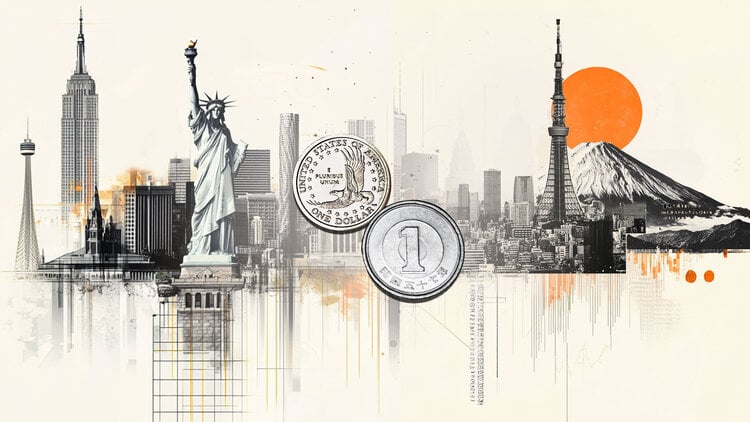Petrobras will complete 50 days without fuel adjustments this Wednesday (2), while the war in Ukraine continues to put pressure on the oil market. The Brent-type barrel closed on Monday (28) at US$97.97, after returning to above US$100, a fluctuation that could cause an increase in Brazilian prices soon, according to experts interviewed by the CNN. However, they point out that the scenario of high inflation and presidential elections should influence Petrobras in the ‘equation’ of parity of values with the international market.
For economist Bruno Imaizumi, from LCA Consultores, Petrobras is no longer able to comply with the parity policy. According to the Brazilian Association of Fuel Importers (Abicom), the market opened on Monday with an average lag of R$ 0.44 for a liter of gasoline and R$ 0.43 for diesel.
“We are talking about a scenario in 2022 that starts to increase inflation, market expectations continue to increase, and the election scenario makes it difficult for the president to perform for reelection”, he ponders.
Regarding Petrobras shares, if the price of oil can attract investors at first, Imaizumi believes that the conflict in Eastern Europe could have different effects if it persists. “In a scenario of uncertainty, economic agents begin to look for assets considered safer, such as strong currencies, US Treasury treasuries and gold”, he indicates.
Conflict can accelerate public policy discussion
Director of the Brazilian Infrastructure Center, an energy market consultancy, Adriano Pires believes that Petrobras can benefit from international fluctuation, as it exports oil. However, he also questions whether the government will be able to maintain parity.
“I hope it will keep, but if it goes to a stratospheric price, which is doable and becomes an exception, I believe the whole world will not want to pass the price on to the consumer”, he told the CNN.
For Pires, the conflict in Eastern Europe should accelerate, in Congress, the processing of projects to stabilize the value of fuels. One of them determines a unified and fixed rate for ICMS, while another creates a financing account to contain price volatility. The Senate postponed the vote for both until after Carnival.
The economist also suggests emergency actions if the conflict in Eastern Europe continues, such as greater investment by Petrobras in social actions, such as aid for truck drivers and subsidy for urban public transport.
However, Adriano Pires analyzes that the proximity of elections in Brazil and the fluctuation caused by the war in Ukraine hamper the debate for solutions. Luciano Losekann, professor and coordinator of the Energy and Regulation Group at Universidade Federal Fluminense, has the same assessment.
“It is a discussion that has been dragging on for a long time. Since the truckers’ strike, it was already known that international parity was a political difficulty. The solution they came up with at that time was very bad, a subsidy that is not sustainable, an idea of tabulation, which today we cannot consider as a solution”, he added.
The researcher recalls that the oil market was already pressured by the shortage of supply during the Covid-19 pandemic and is now accumulating the effect of the war in Ukraine. He welcomes the project he is currently dealing with on ICMS and highlights the point of taxation as central to the debate.
“The Brazilian tax structure ends up concentrating volatility. The rates that apply increase volatility when it reaches the consumer, adding to the variation in price, exchange. Taxes should act in the opposite way, to try to cushion this impact”, he argues.
He also recalls that Russia’s attack on Ukraine should provoke oil-like effects on the international gas market.
Companies ask for government solutions
Despite pointing out the lag in fuel prices, the executive president of the Brazilian Association of Fuel Importers, Sérgio Araújo, believes that Petrobras will not be able to pass on all the readjustments in the international market, but demands a public policy of standardization.
“With the very high lag and with Petrobras serving the domestic market with low prices, private companies are out of operations, imports are totally unfeasible”, he says.
THE CNN questioned the federal government and Petrobras about pricing policy and the impact of the war in Ukraine. The state-owned company disclosed that it maintains the position disclosed in a press conference last week, when the director of Commercialization and Logistics at the state-owned company, Claudio Mastella, said that the company monitors the movement and fluctuation of values to punctuate possible consequences.
The question to the federal government, on the other hand, remained unanswered until the closing of this report.
Source: CNN Brasil
I am Sophia william, author of World Stock Market. I have a degree in journalism from the University of Missouri and I have worked as a reporter for several news websites. I have a passion for writing and informing people about the latest news and events happening in the world. I strive to be accurate and unbiased in my reporting, and I hope to provide readers with valuable information that they can use to make informed decisions.





